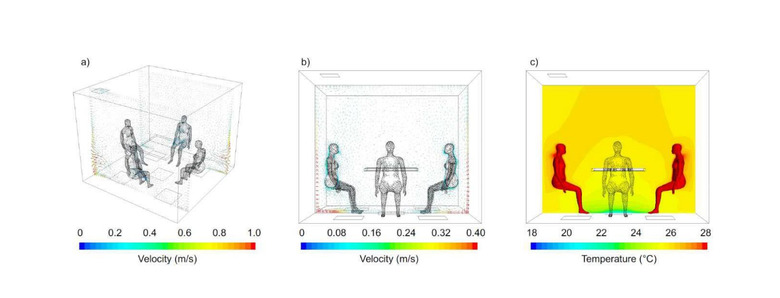Discovery Reveals Humans Change The Chemistry Of The Air Around Us
Air pollution is a massive problem. Outdoors, though, the sun, falling rain, and even oxidation that happens naturally help clear the air. But, when you're indoors, many of those factors aren't at play. Instead, a new study says that humans may be the dominant changer of air chemistry indoors, a discovery many weren't expecting.
Scientists baffled after discovering humans change the air chemistry around them
It's hard to negate the effects that human interaction with the world can have on the environment. From overhunting to industrialization, the damages done to our world are numerous. Most actions we take can change the chemistry of our world. And now, it seems, that even living and being in a room can change the air chemistry around your body.
A group of researchers published findings on the subject in the journal Science this month. They discovered that humans create an oxidation field around them during their research. When outdoors, this field is overridden by other forces. But inside, there are no other forces to override it. So, our body's oxidation field becomes the dominant one around us.
It's an intriguing discovery and one that continues to prove just how amazing the human body is. Not only are we a source of reactive chemicals, but we can also transform those chemicals. Nora Zannoni, an atmospheric chemist from the Institute of Atmospheric Sciences and Climate in Italy, explained in a post from the Max Planck Institute for Chemistry.

To see just how much humans change the chemistry of the air, the scientists carried out multiple experiments within closed-off rooms. They put three different groups of four people in a special chamber with ozone levels matching the upper end of what is found indoors typically. From there, they recorded how the humans' oxidation fields changed the air chemistry around them.
The results were shocking, to say the least. And these findings are essential for several reasons. Not only do they add depth to our understanding of the human body, but it also has implications for how we determine when the air quality inside is clean and healthy. This is especially important because of the recent happenings in the world over the last few years.
Even more interesting is that these oxidation fields may affect our perception of odor. There's just a lot we don't know about yet, and more research will need to be done to see how much humans change the air chemistry. Taking this first step is half the battle. Now that we know about the field, we can look into it more, and better understand the effect we have on the world around us.
More science coverage: See how space affects the human body.

